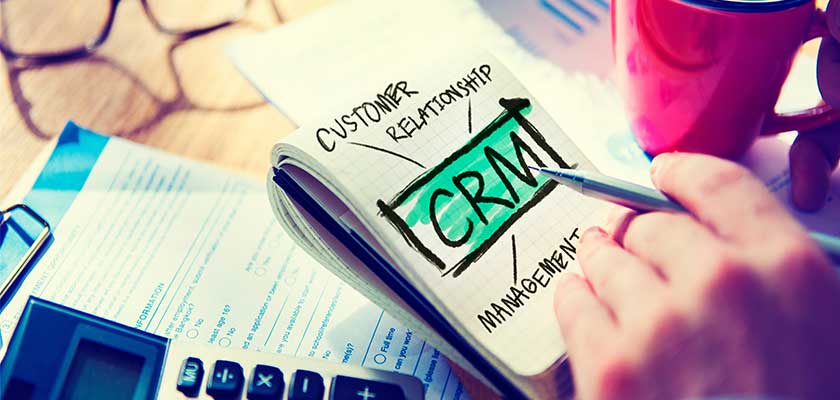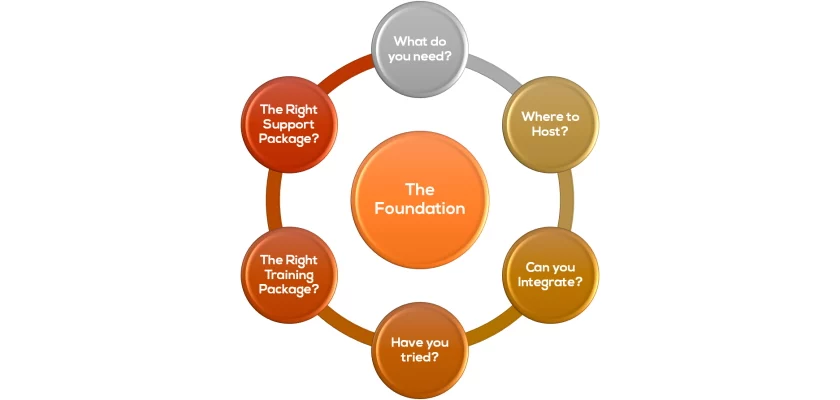How to Select a CRM System for Business: Beginners Guide
A CRM helps you manage your business landscape as it grows. If you are manually entering data and storing it in clunky sheets, it’s time for an upgrade. Choosing a new CRM system is an exciting journey! If you’re...

A CRM helps you manage your business landscape as it grows. If you are manually entering data and storing it in clunky sheets, it’s time for an upgrade.
Choosing a new CRM system is an exciting journey! If you’re unhappy with your current CRM system, don’t worry, you can follow the same steps to choose a replacement.
Our industry is fortunate to have many CRM systems that are cutting-edge and can accommodate businesses of any size. If you’re overwhelmed by the prospect of choosing your next CRM, have no fear! These tips will help make your decision-making process fun and easy.
Let’s start with the basics.
Utilizing a CRM has a lot of benefits:
History of interactions with potential and existing customersA sales and marketing historyThe ability to provide outstanding customer service that will WOW your clients.It’s easier to keep your customers if you give them what they want.More sales, customers, and revenue.Smoothly integrating into your company’s systems for a streamlined experience.Selecting a CRM is not a decision to be made lightly. Deciding which product to choose is not only a difficult decision but also a costly one. With the plethora of products available, it’s hard to choose which suits you best. These options have benefits and drawbacks that must be weighed when considering a purchase. If you make the wrong decision, it can cost you money and damage your relationship with clients, members, and staff who are unhappy with the result. Seeking professional help is always advisable, here are some key points to consider when looking for a CRM system.
Stage Zero: The Foundation
It’s easy to become side-tracked when evaluating vendors, prices, and demos while trying to find a CRM, so what are your specific needs? Some typical questions to ask yourselves before engaging with externals are:
What processes within our organization need improvement?What new processes do we want to introduce and why?What kind of system will best support our plans and strategy?What justifies such a drastic change if we are replacing our current CRM?What specific benefits will a CRM bring us?How well does this potential CRM integrate with the other applications we use or plan to use (CMS, finance apps, events systems, learning systems)?Who in our company will use the CRM most often (people/teams/departments), and how many licenses do they need access to?What is our pragmatic budget for this project?Stage One: What Do You Need?
Make a list of the features and functionality you need for your future plans.
CRMs come equipped with everything your business needs to succeed. Be careful of picking a system solely because it has lots of features, as you will likely never use most of them.
Additionally, ensure the system has all the essential features for your business processes. A static business will quickly become stagnant; to keep growing, you need a system that can handle an increasing load.
Even though it may seem like vendors promise that “everything is possible,” keep in mind the extra costs and time needed to make a system meet your specific needs.
Customizations are possible, but they may not always be worth the extra cost and hassle.

Stage Two: Where to Host?
Your CRM’s infrastructure is one of the most critical aspects of your business, so take care when choosing where you decide to host it. You can either host your CRM internally or on the cloud.
Whether to host on-premise or in the cloud depends on your organization’s structure and needs. If you choose to go with on-premise, you’ll need the physical hardware and reliable personnel to support and maintain it all.
Both options give you control, but if you have an in-house IT team, going through them might make more sense. If you want to log in and access your system without worrying about hardware and support, the cloud option might work better for you.
Most CRMs will provide both configurations so that you can explore the pros and cons of each approach in greater detail.
Stage Three: Can You Integrate?
When considering a CRM system you should view it as part of your larger infrastructure and not in isolation. Your current digital landscape consists of other systems and business processes- the CRM is one more piece to add to the puzzle.
How will the CRM coexist with your other systems, and how well does it fit into your key processes? Are there existing integrations/APIs you can use, or would you have to create them? Be careful of systems that say they can integrate in the “future.”
Although you might be able to get away with integrating later, the truth is that these tasks will more than likely take a lot longer than initially expected.
If you are hoping to add or replace other systems down the road, you must familiarize yourself with all potential options.
While CRMs can store a lot of helpful data, that data is only useful if you can access and share it easily with other systems.
A CRM that isn’t integrated or difficult to integrate is essentially just a fancier spreadsheet.
Stage Four: Have You Tried Before You Buy?
Before you make any purchase, test out the CRM software with a free trial from the vendor. This way, you can confirm it will work well for your business. Pre-sales vendor personnel are always available to help you understand the product by answering questions and simulating real-life experiences.
Make sure to look at the flavors of the products specific to your industry, as they have been designed with the industry’s core requirements.
The pre-sales teams are always happy to help prospective buyers test out the product and have a lot of knowledge in multiple industries. Do not be afraid to ask questions and get as much information as possible.
This is a significant investment for your business, so you want to ensure you understand what you’re buying. Try to review at least 2-3 different systems before making a decision.
Even if you have your heart set on one particular system, keep an open mind and get educated.
Stage Five: Do You Have the Right Training Package?
Although CRMs should not be complex, you must understand how to use them correctly and efficiently. Over the years, we have talked with many clients who brought up the same, identical problems.
A common thread is that the person or team using the CRM has moved on, leaving no one behind with the system knowledge.
Online documentation is a great way to complement your training but it shouldn’t be the only resource you can rely on. Your teams are competent professionals but that doesn’t mean they should be CRM experts.
Make sure that your commercial agreement with your vendor includes the initial set-up, comprehensive training packages, and bespoke training documentation specific to your implementation so you can efficiently onboard new staff.
The thought of outsourcing the initial set-up might, at first, make you second-guess the costs. It’s easy to be tempted to do the configuration internally because somebody has done it before or it seems straightforward. Beware of such temptations and invest in professional services.
Stage 6: Do You Have the Right Support Package?
As part of your commercial negotiations ensure that your vendor is not going to “deploy and forget”. Ask specific questions about your individual needs rather than being content with a vanilla support package.
Although a vanilla package may not always serve your purpose equally you don’t want to overspend on services you won’t use. It is crucial to understand what the support model entails, as well as the SLAs and inclusions of your chosen package.
Be sure to have a point of contact within your CRM vendor that you can easily reach. When reviewing the ongoing support costs, they may seem high but would you buy a car without insurance?
Your support and maintenance should be viewed as an insurance policy for your business so that if something goes wrong you are fully covered and protected.
After you make your decision, the planning and excitement start.
You can save yourself a lot of time and disappointment down the road by taking care to set up your CRM correctly from the start. This means including adequate time in your project plan for discovery, setup, and user acceptance testing.
Remember that you’ll be using this system for years to come, so it’s essential to be confident that it will help you solve problems and earn the ROI you expect before beginning your journey with a CRM.
At Discover Digital, we have a wealth of experience helping businesses and organizations to set up their digital landscape. We can help you design, implement and integrate all the pieces of your architecture to work seamlessly.
Contact us today to discuss your digital needs, and let us help you make informed decisions in the meantime, happy CRM exploring!

 Troov
Troov 









2.jpg)

_80.jpg)



















